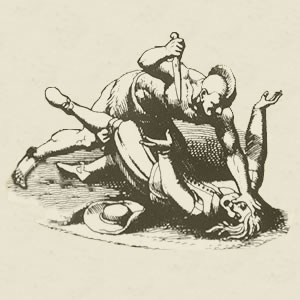Jamestown - Introduction

Say "Jamestown 1607," and the phrase "first permanent English settlement in the New World" no doubt jumps immediately to mind. Jamestown is a magic place in our imaginations, one of our most important founding sites. But foundings do not occur by magic. They are relentlessly gritty. And, in reality, Jamestown very nearly didn't survive the first two years.
Seeking in 1609 to save the colony through a second charter and expanded public involvement, the Virginia Company – beset with questions about not only the utility but morality of plantations – "initiated a promotional campaign that for its sheer volume was unequalled in previous colonial enterprises" (Fitzmaurice 63-64). That promotional campaign in 1609-1610, delivered mainly through sermons and asserting at its most ideal that conversion of the Indians rather than financial gain was the primary goal, provides the cluster of justification documents we attend to here.
The "massacre" of 1622 that resulted in the deaths of one-quarter of the colonists – fostering extirpation rather than education of the Indians – provides a second cluster ripe for further study. The clash of these justifying modes framing Jamestown's first cultural moment (the Virginia Company would lose its charter in 1625) makes instructive reading.
This Jamestown section of our Literature of Justification project – drawing on The American Indian in Western Legal Thought: The Discourses of Conquest by Robert A. Williams – was initiated by Mehnaz Ara Choudhury in spring 2004. Second generation work was performed in spring 2006 by Mehnaz Ara Choudhury, Edward J. Gallagher, Christina M. Hoffmann, Kate Lehnes, Karen B. Manahan, Elizabeth Vogtsberger, and Elizabeth Wiggins.
We envision our Literature of Justification project extending beyond students and faculty at Lehigh University, and we welcome suggestions, corrections, questions, and, especially, appropriate contributions of all types from bibliographical entries through full essays.
Contact Professor Edward J. Gallagher, Department of English, Lehigh University via e-mail at ejg1@lehigh.edu.

